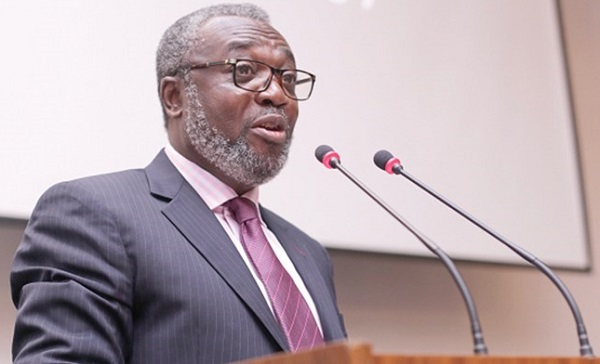
First anti-malaria vaccines ready for pilot in Ghana
Piloting of the world’s first anti-malaria vaccine for children aged between six months and two years will begin in the country from May 1 this year.
The vaccine — Mosquirix or RTS,S — is being introduced as a boost to Ghana’s National Anti-Malaria Programme.
Ghana is one of three African countries selected for the vaccine test by the World Health Organisation (WHO), which is seeking to introduce the vaccine globally. Kenya and Malawi are the other two countries.
The first batch of the vaccines, constituting 400,000 doses, has been delivered to Ghana by the WHO for the start of the three-year pilot.
The vaccine acts against plasmodium falciparum, the most deadly malaria parasite in the world and the most prevalent in Africa.
They will be administered through the routine national immunisation programme for free in 33 districts in the Central, Oti, Volta, Bono, Ahafo and Bono East regions.
Press briefing
At a press conference in Accra last Wednesday, the Director-General of the Ghana Health Service (GHS), Dr Anthony Nsiah-Asare, said the vaccine was a malaria control tool intended to complement other interventions and not to replace the existing package of proven malaria preventive, diagnostic and treatment interventions such as bed nets and indoor spraying with insecticides.
He said although the country had experienced significant gains in the control of malaria with existing interventions, malaria remained a burden and a public health problem in Ghana with high mortality and morbidity rates.
He said various national and international trials had proven the safety of the vaccine, and appealed to the public to reject social media campaigns against its use.
Dr Nsiah-Asare said Ghana expressed interest in piloting the vaccine, and based on its high malaria burden, its robust immunisation policy and national malaria control programme, it was given the nod to conduct the trials alongside Kenya and Malawi.
He said preparation ahead of the trial included human resource capacity building, public education and sensitisation, and stakeholder engagements.
Malaria burden
The Director in charge of the Public Health Division of the GHS, Dr Badu Sarkodie, said although malaria was a life-threatening disease, it was preventable and treatable.
He said in 2016, 10.4 million suspected cases were recorded, with 380,000 people admitted with malaria, while it claimed 1,246 lives.
He said it was a major public health concern in Ghana, with a year-round transmission that affected children mostly.
He said without action and such interventions, a child would die in the next 30 seconds and about 3,000 children would die every day of malaria.
Ghana is considered to be at high risk of malaria as it accounts for about four per cent of the global figure and seven per cent of the burden in West Africa.
Expected outcomes
The intended vaccination is expected to prevent malaria in the target group, reduce the number of times children get infected with malaria and their chances of getting infected with severe malaria.
Children will be expected to receive four doses of the vaccine at six months, seven months, nine months and lastly at two years in addition to the other 12 immunisation vaccines on the national list.
The pilot is expected to reach between 120,000 and 150,000 children every year.
The GHS is projecting to avert at least 50,000 malaria cases and save approximately 750 children annually from malaria deaths.